Drive to Survive: Producers say Formula 1 is 'not run for Netflix'
- Published
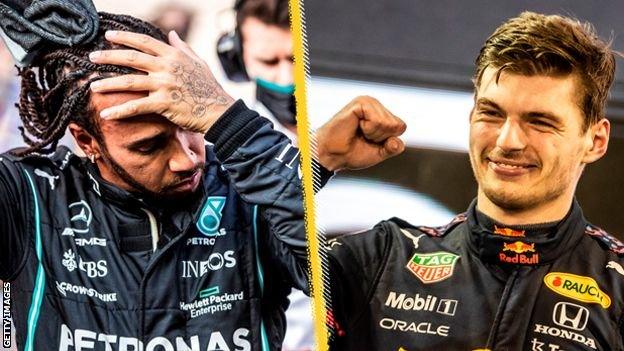
Drive to Survive producers deny there has been any 'Netflix effect' on Formula 1
The new Formula 1 season is only a week away - but can it match the drama and controversy of 2021 and that final race, in which Max Verstappen snatched the title from Lewis Hamilton?
The fallout has barely subsided during the three-month off-season, with the removal of race director Michael Masi, question marks over seven-time champion Hamilton's future, and an ongoing rivalry between Red Bull team principal Christian Horner and Mercedes counterpart Toto Wolff.
And now the fourth series of Drive to Survive - the hit all-access Netflix documentary about F1 - is streaming, taking us behind the scenes of last year's epic championship battle, which was decided on the final day of the season by a controversial call and a one-lap shootout.
Among the many accusations in the aftermath of that thrilling Abu Dhabi Grand Prix was the claim it had been engineered for maximum entertainment - sacrificing sporting integrity for TV drama.
But, speaking to BBC Sport, the producers of Drive to Survive said there was simply no way decisions were made with Netflix in mind.
James Gay-Rees said the suggestion was "a total red herring", adding: "It's just people under enormous pressure making decisions in the moment. There's no way anybody was thinking: 'Will this play well on Netflix?'"
Despite that, some within F1 have suggested the show creates, or at least exaggerates, narratives.
Wolff was quoted, external this week as saying: "They create a spin to the narrative. They put scenes together that didn't happen. I guess you'd say as an insider: 'Well, that's different than how it was.'
"But we're creating entertainment, and that is a new dimension of entertainment."
Paul Martin - one of the show's creators - takes a different view, telling BBC Sport: "Over the four series, Drive to Survive hasn't over-editorialised anything."
Verstappen is another from within the sport to have voiced some criticism for the documentary - and he doesn't give original interviews to its makers.
He said, external of the series: "They faked a few rivalries which don't really exist."
Gay-Rees responded: "It's a headline that everybody's jumped on, but I think it's a very subtle thing. Nobody could point to any misrepresentations or inaccuracies in the series."
Here are three things we learned from watching the series...
The final three races of the season are as dramatic as we remember
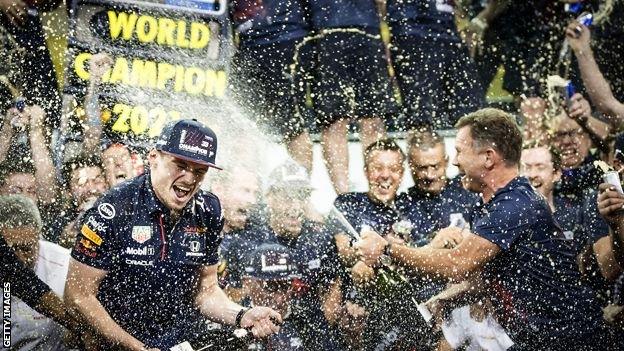
The series finale looks at the Abu Dhabi Grand Prix
The final two episodes of the series cover the season's final three races - in Qatar, Saudi Arabia and Abu Dhabi.
If you are hoping for unseen insights on the conversations between the main players - Hamilton, Verstappen, Wolff, Horner and Masi - you may be disappointed.
Gay-Rees explains: "It was all broadcast at the time - it's just a question of how we use it. The aftermath doesn't figure in the series - that's above and beyond our remit."
And Martin says the show doesn't take a view on how the season concluded, adding: "We're not there to form opinion. We're there to tell an authentic version of what went down and how that race ended."
Nevertheless, it's compelling to watch those final races again.
In an interview with 5 Live Breakfast, Gay-Rees said of the final episode: "I don't think I've seen a sports documentary like this which just grabs you by the throat and doesn't let you breathe for 45 minutes."
In that episode we cut between the drivers and the team principals going wild throughout the race. And it is clear when Wolff is interviewed afterwards that he doesn't accept the way things turned out.
"Max was worthy of winning the championship, but not in the way it happened," he tells the film-makers, adding: "If you're doing a good enough job, you will win the race. But here, that is not how it went. The decision was simply wrong."
He also strikes a combative tone when he says Red Bull "couldn't have done any more to motivate" his team for the coming season, adding: "Everyone has a target on their backs."
Horner v Wolff is a rivalry that keeps on giving
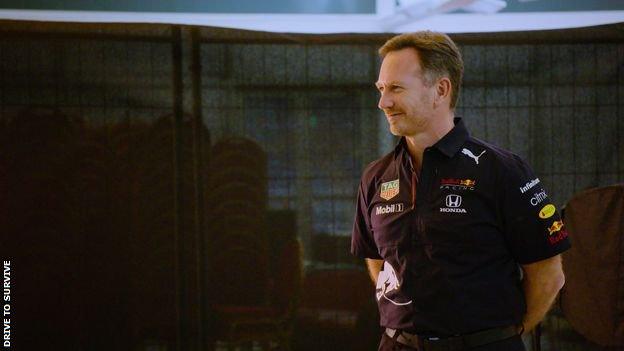
Red Bull's Christian Horner is out to get Toto Wolff's Mercedes team
There is no sign of hostilities between Horner and Wolff easing up, with the former telling BBC Sport earlier this week that he believed Mercedes' "bullying" had led to Masi's removal as race director.
It's a narrative that plays out throughout the TV series, and ramps up in the final two episodes.
Gay-Rees told 5 Live Breakfast: "I think people assume they ham it up for the cameras, and I don't think that's true."
At one point in the series, Horner even jokes about whether he could beat Wolff in a fight.
"Christian is a little bit like a Jack Russell terrier, who likes to snap at your heels," says Wolff.
Horner says Wolff "maybe feels that I antagonise him a bit," but adds: "That's part of the sport."
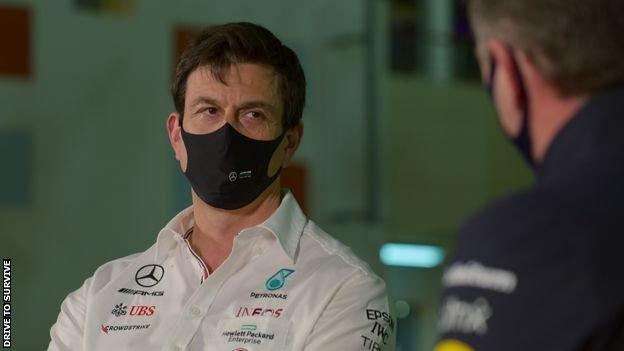
Wolff knows that Horner is waiting for him to slip up
Life at Haas is not plain sailing
Haas sacked driver Nikita Mazepin last week after Russia's invasion of Ukraine as Mazepin's father Dmitry, who was a team sponsor, has close ties with Russian President Vladimir Putin.
But, as the series depicts, it was never an easy relationship.
Mazepin Jr had a torrid time during his first season in Formula 1 - never finishing higher than 14th.
He seems to blame everyone but himself, and in one scene we see team principal Guenther Steiner having to advise the young driver not to be so aggressive to his engineering team.
After one outburst by Mazepin, Steiner says: "That's why people hate you."
What's more, Mazepin's father is shown to be interfering.
In one scene in episode four, he asks Steiner what he's doing with his son and warns him: "If it doesn't change, I will send an official letter that we will stop financing."
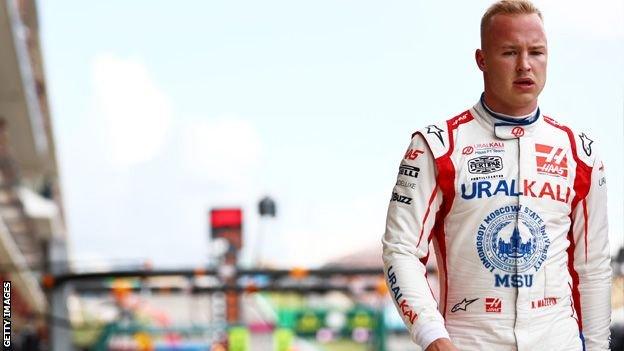
Nikita Mazepin struggled to impress in his first season in Formula 1

The world's toughest multi-day mountain race: A gruelling look at 'The Dragon's Back' challenge
Is this it for Villanelle and Eve? Watch the thrilling new series of Killing Eve now
